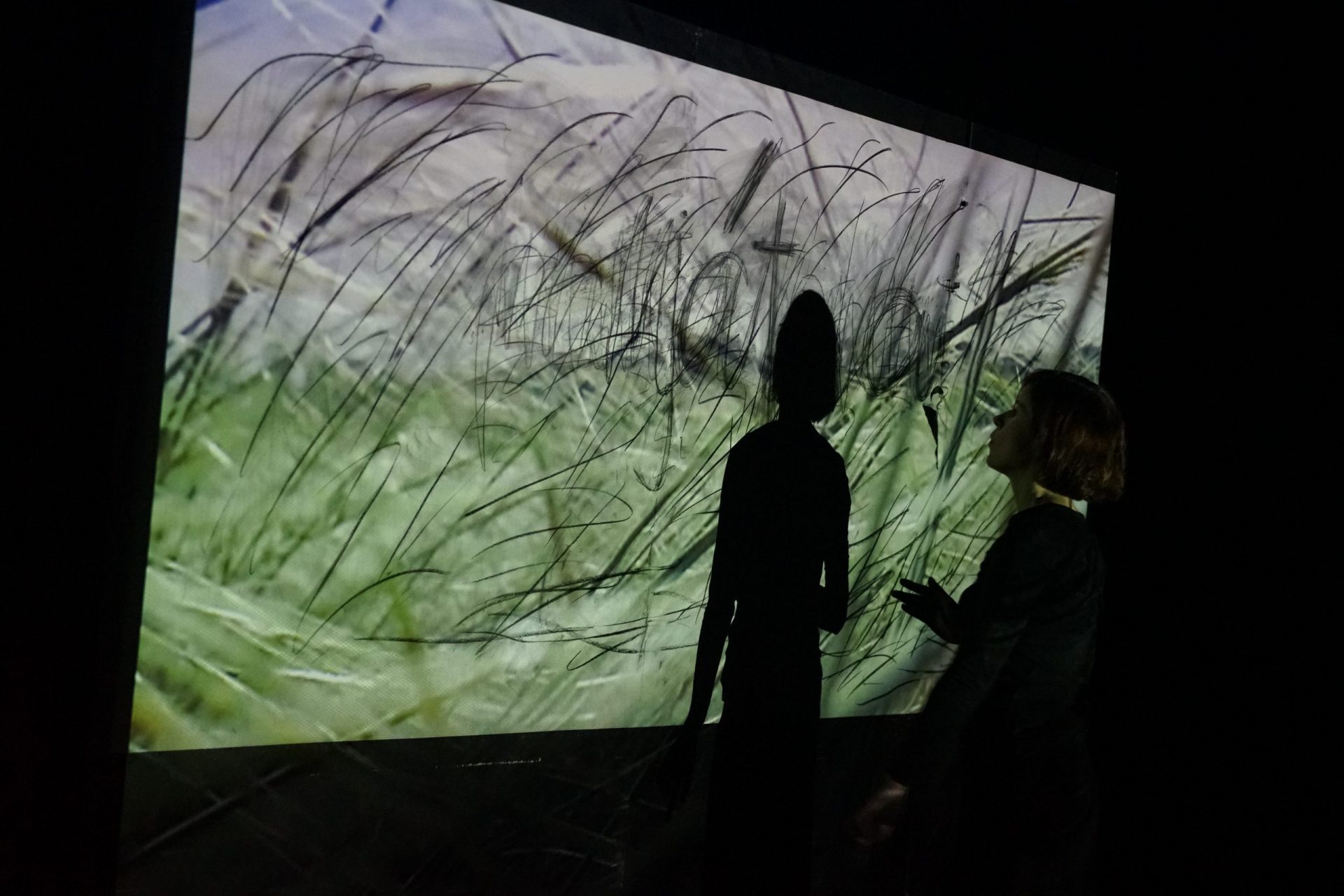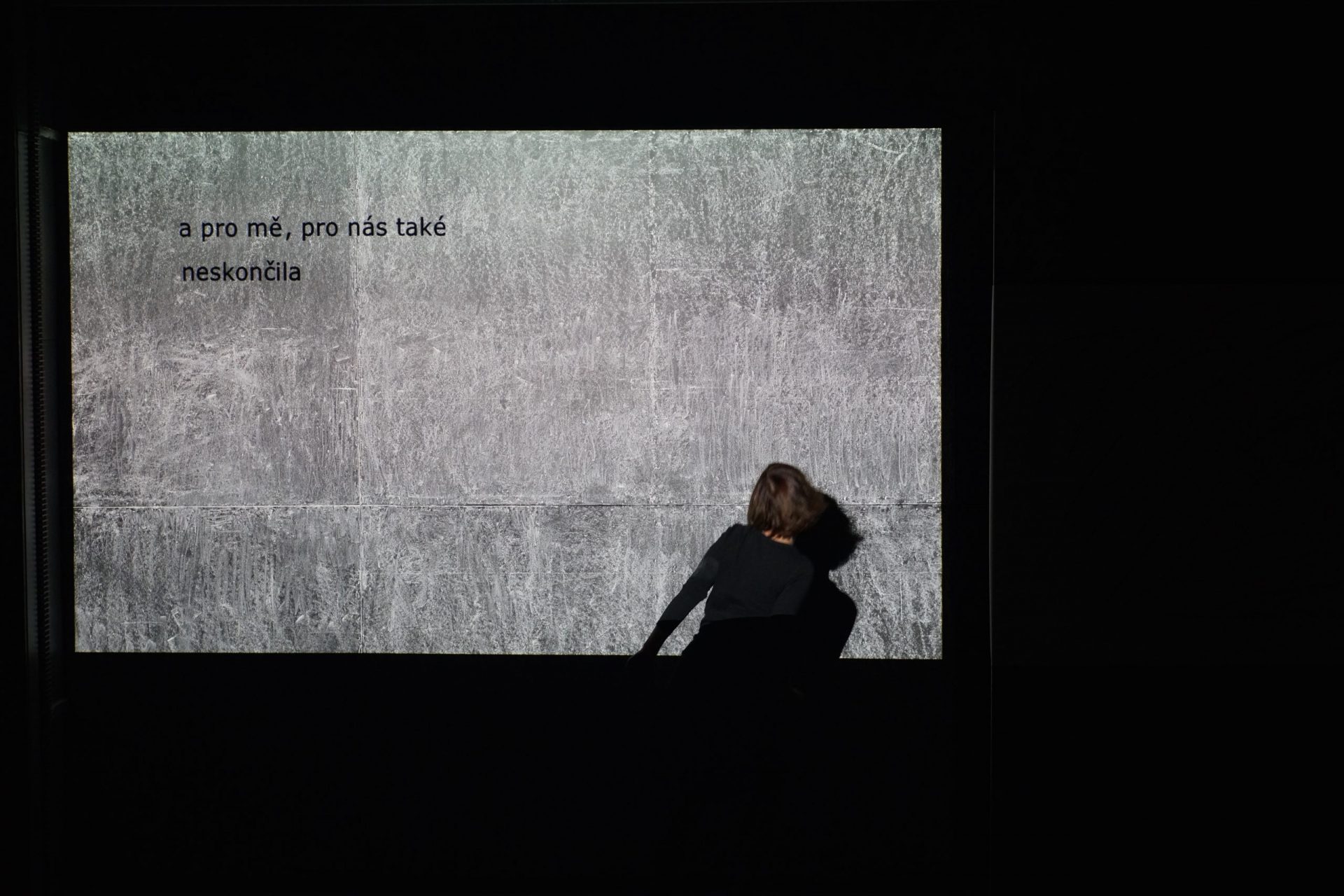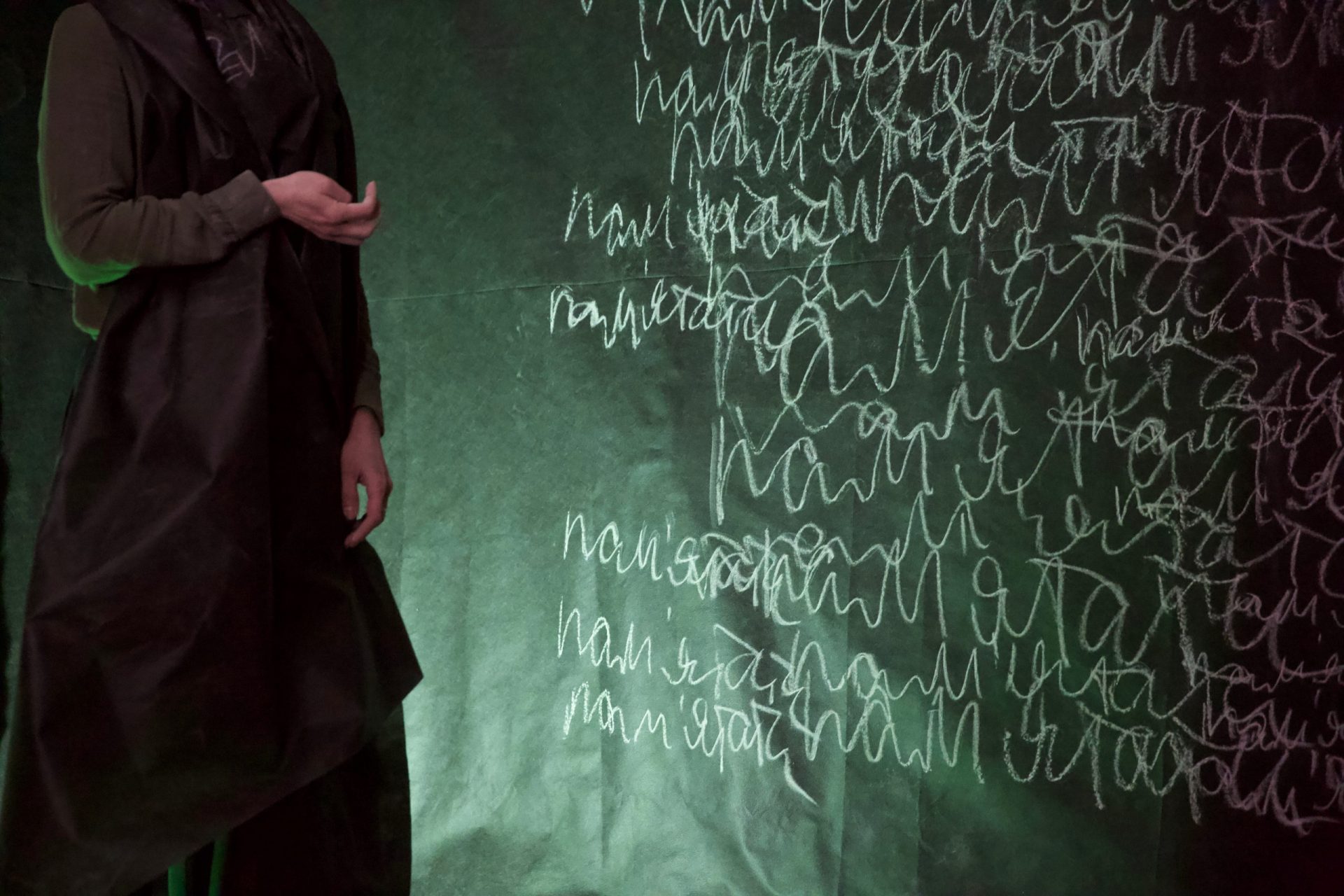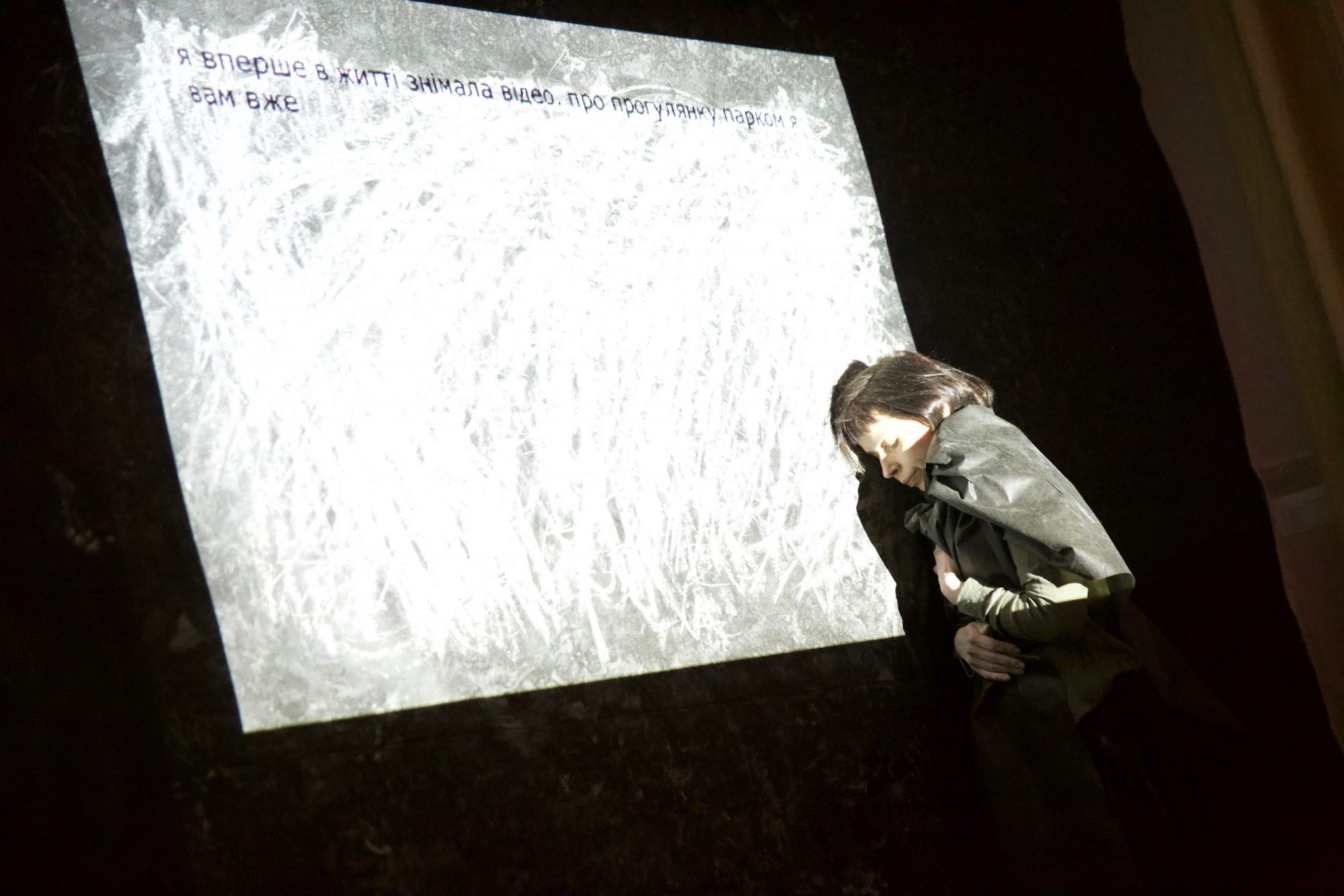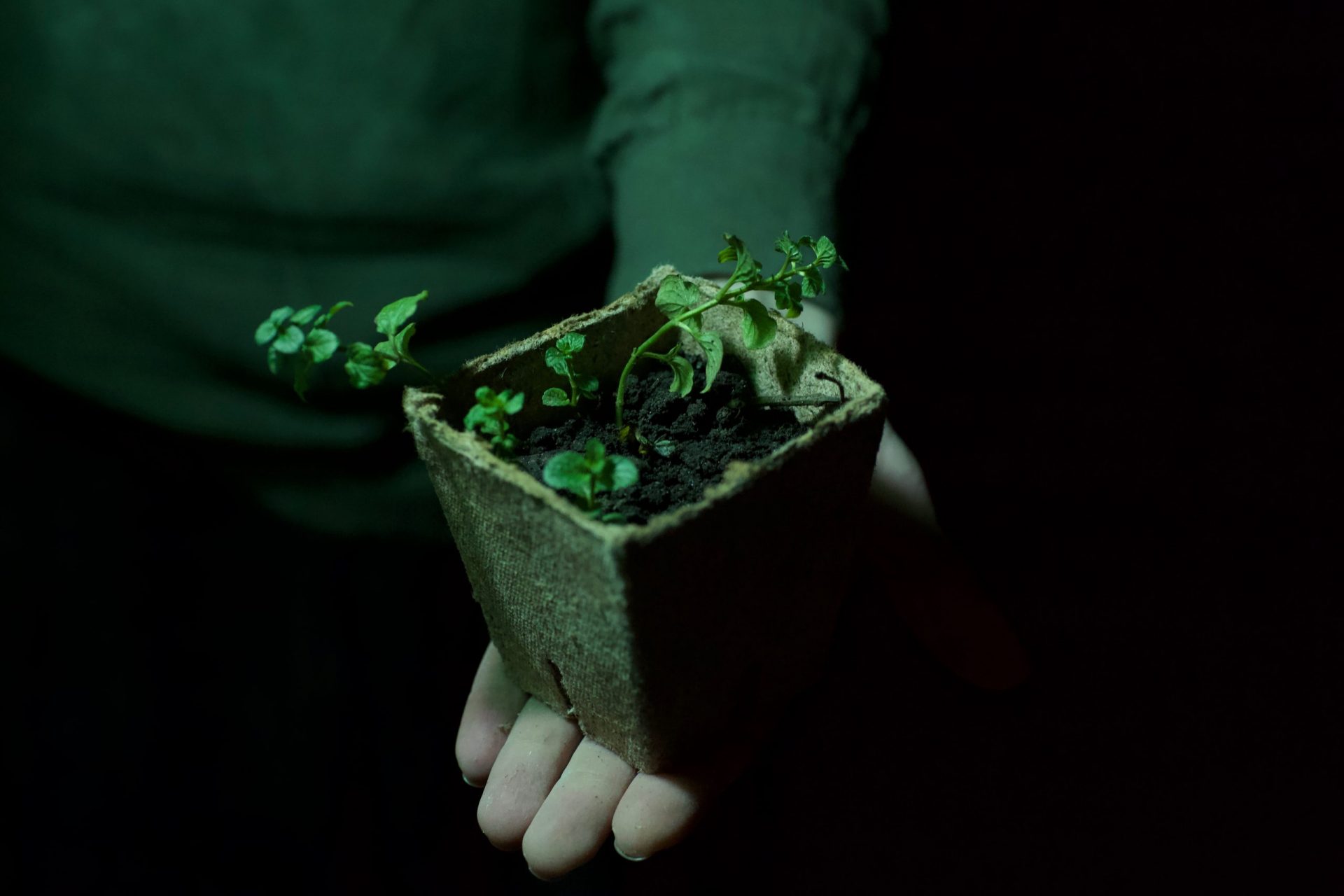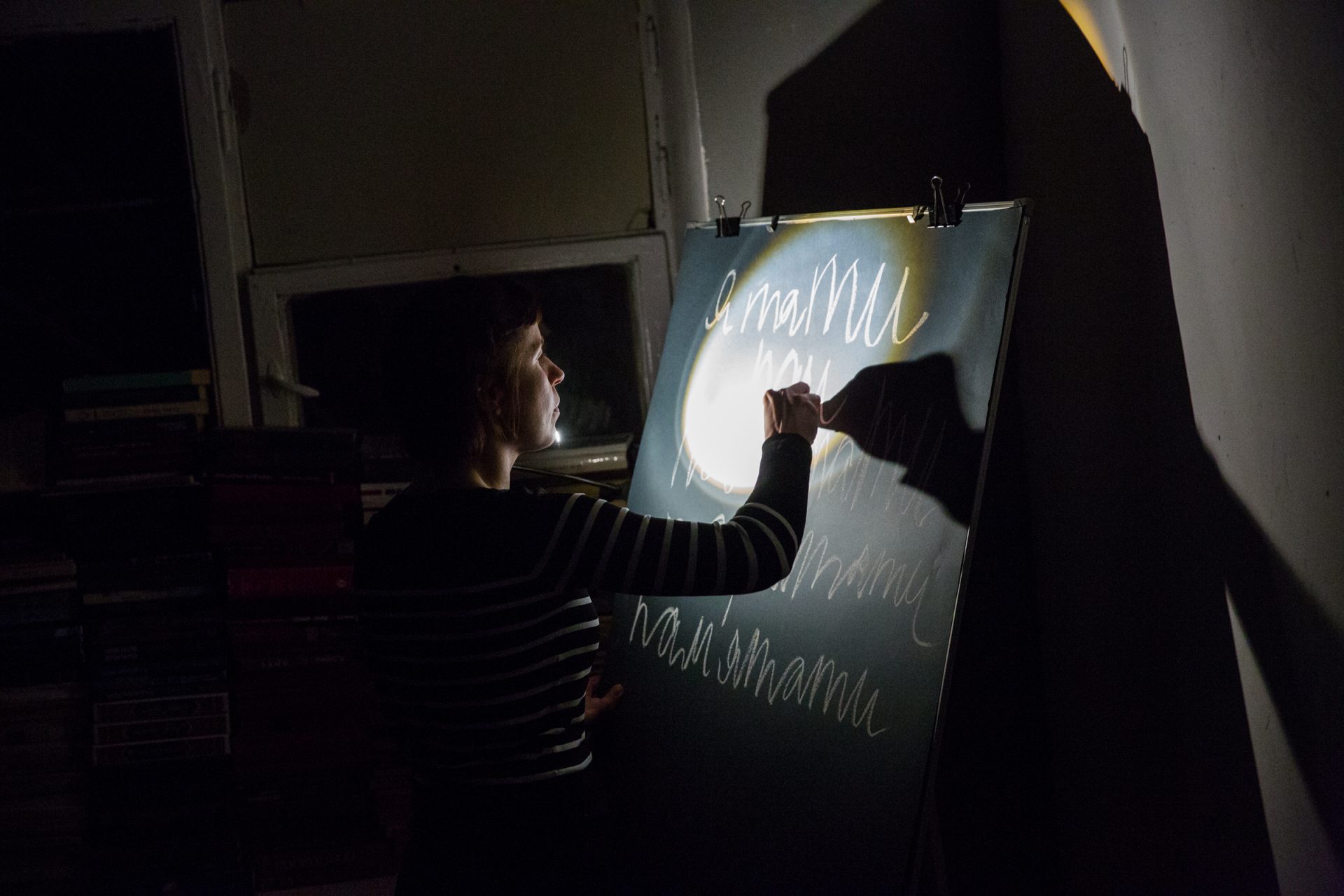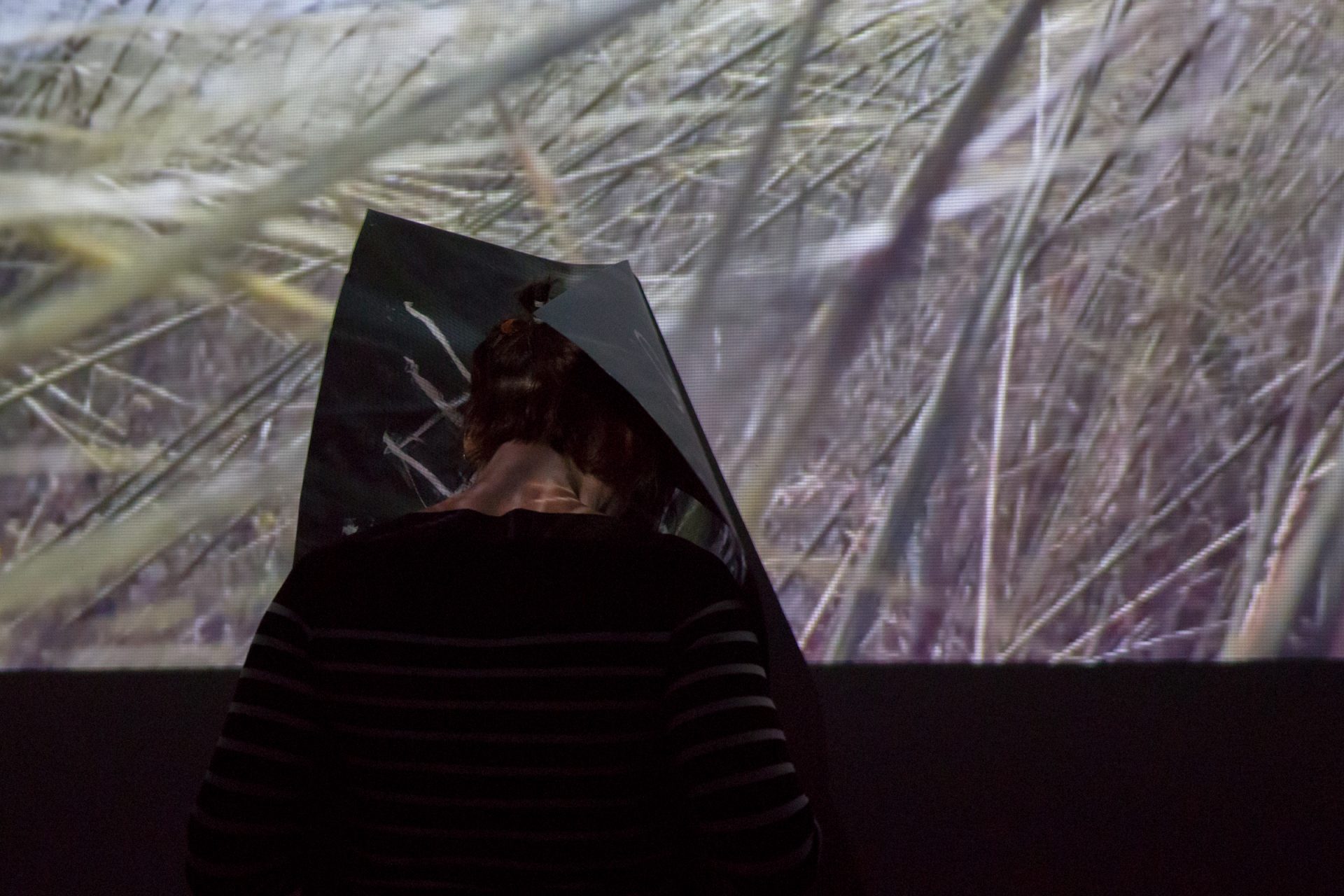rememberMINT
- Olia Mykhailiuk
- idea, photo, video, text
- Valerii Chobotar
- text
- Oleh Bozhko
- text
- Mark Tokar
- double bass
- Alexey Vorsoba
- accordeon
- Natalia Perchyshena
- recording of the interviews
- Tomasz Sikora
- sound editing
- Benjamin Cope
- translation
- Tetiana Mytalnykova, Ihor Mytalnykov
- subtitles
RememberMINT is a multimedia collage that includes video notes by Olia Mykhailiuk from Donetsk and Luhansk regions, music, fragments of performance, and documentary stories of the gardener from Alchevsk (East Ukraine) and the military man from Ternopil (West Ukraine). During the performance, Olia draws with white chalk on the black surface and also plants mint. This chalk was taken as a souvenir from the Chalk mountains between Kramatorsk and Bakhmut before the war. And this mint was brought by her friend from Alchevsk where they had spent some time together in occupation. Chalk and mint return us to the currently occupied Donetsk and Luhansk regions.
2016
Berdyansk Art Museum, the VKHIDnaSHID international residence
Bunkermuz-gallery, Ternopil
Akcent Documentary Theater and Performance Festival, Prague
This work existed as a performance. Transforming a little bit every time it was shown in various cities of Ukraine and other European countries. The performance always included the planting of mint from Alchevsk.
2017
rememberMINT was shown in the east of Ukraine near the war zone — Starobilsk, Siverskodonetsk, Kramatorsk, Bakhmut, and Mariupol.
In 2021 Olia Mykhailiuk decided to edit rememberMINT in the form of video work, adding videos from all these cities. So in 2021 Siverskodonetsk chalk mountains, Bakhmut’ sunflowers, and the Azov Sea Mariupol’ birds appeared in the work (in 2022, all these territories became epicenters of war). The first presentation of the video took place in Mariupol nine months before the beginning of full-scale invasion. After that Olia planted mint there in the City Garden.
2021
Platforma TU, Mariupol
Vagabundo, Ivano-Frankivsk
2022
Ukrainian House, Warsaw
Latvian Center for Contemporary Art, as part of the international exhibition “Decolonial Ecologies”, Riga
In May 2023, Olia Mykhailiuk continued the story related to the plants of eastern and southern Ukraine and the war. Since most of the territories are currently occupied or mined, it was quite difficult to find areas of the Ukrainian steppe zone, but possible. People from Kherson Botanical Garden were able to preserve plants even during the occupation. At the beginning of June, Olіa filmed plants for the new part of rememberMINT. She planned to show it in Warsaw bn June’2023, combining it with the performance and music. On the way to Warsaw, she found out about the explosion of Kakhovs’ka hydroelectric power plant. It transformed the idea. The author included in her work videos of Ukrainian cities and villages before/after their occupation by russia. Without explanation, it’s clear that south and east of Ukraine is a zone of ecological disaster.
2023
Ujazdowski Castle, Centre for Contemporary Art, Warsaw
Interakcje, International Art Festival, Piotrków Trybunalski
“rememberMINT” is not only recollection but prediction. The method of creating the project is intuitive. I has never had a script. Instead, I used personal photos, video and audio notes, and it exists in constant transformations. “rememberMINT” could be called foreknowledge, if the war had not been raging in the east of Ukraine already, and it had not contained quite specific examples of trauma. This is both a prediction and a kind of instruction of what to do next — how to survive with so difficult experience, repeated twice.
In 2023, I decided to create a new part. Suddenly, I discovered that in my life, as then in 2014, there is a gardener and a soldier whose stories need to be covered. And again it is mint and other herbs. The same pattern. But not only Donetsk and Luhansk regions but also Kherson and Zaporizhzhia are occupied. I remembered Berdyansk, where Mark Tokar and Alexey Vorsoba started to create music for the project. All those compositions that seemed joyful delight were never heard again. I return to work because I believe that there will be time for this music. We will record interviews not about the cities that are taken from us, but about the cities that we return. At some moment we will be able discuss flowers without additional metaphoric meanings. And we will talk not only about wounds but also about how they were healed. In short, it is going to be a project about love and return. But there is a lot of herbs and chalk before that.Olia Mykhailyuk






